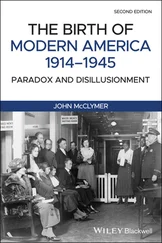‘He is much reduced.’
‘I am sorry to hear that.’
‘So his wife and children are in Budapest now?’
‘I do not know where they are, I am afraid. This is all I know of the man. Now I really must go. Perhaps it would be useful for your further enquiries if I refer you to my colleague — Professor Hebra. I think he knew Professor Semmelweis well. Professor Hebra can be found at this address …’
*
He wrote it down for me on a piece of paper. I thanked him, and he nodded and waved me away. When I hurried to make enquiries of Professor Hebra, I was disappointed to discover that he had gone to Paris for a conference, and would be absent for a week. The lying-in ward, which I went to immediately I had failed to locate Professor Hebra, was equally unhelpful. I pushed open the heavy doors. It was an unusually hot day, and there were hardly any medical students in the wards. There were rows of women lying in beds — the blankets moulded around the swollen forms of those who had not yet delivered, and their faces taut with pain. Row upon row of them, about to cross the threshold, not knowing if they would survive. In suspense they lay there, and they had looked up fearfully when I opened the door. I had little time to gaze upon them before a midwife hurried up to inform me I could not stay there. She held up her hands, as if to shield the modesty of these women. So I bowed and turned away. I was pursued along the corridor by a strange volley of sounds, some like war cries, and some like the lowing of cattle. Then I found some terse doctors, who told me they knew nothing of any Semmelweis and hadn’t time to consider the nature of his accusations. When I asked them about chlorinated lime solution, and cadaverous particles, one of them — a stern man of forty or so, who had just come, he said, from delivering a healthy boy, and who had to hurry to advise a midwife on a troublesome birth — said he had heard mention of something of that nature, but it was blatantly apparent — as Professor Klein had always argued — that puerperal sepsis was spread by a foul atmosphere, and all that was required was an extensive ventilation system, such as Professor Klein had installed. ‘Chlorinated lime is simply superfluous, though any man should feel entitled to use it if he wishes,’ he added, and then hurried away to his duties.
*
Feeling hot and rather tired, I went to take a glass of lemonade in a café nearby. As I reviewed my recent enquiries, I wondered if the best course of action would be to inform Herr S of what I had found and thus — perhaps — prompt him to further recollections. I suspected I held the key to his human identity, his social existence and the nature of his profession. I was confident further details of his life could be gathered: I had only spoken to one man, and he was no expert on childbirth, and he had already told me a great deal about Professor Semmelweis. Once Professor Hebra returned, he would clarify matters further. Had I the time, I thought, I could make a decent study of this man Semmelweis, and discover something of the controversy over his assertions, the battles he had fought, those colleagues who had supported and later deserted him, and no doubt, in the end, precisely who had committed him to the asylum. I was quite convinced I could hunt much of this information out, if I devoted some time to the case.
*
Yet I am not a detective, naturally given to harvesting facts, craving resolution simply for the neatness and purity it affords. I was mindful, furthermore, of Herr S’s own reluctance to regain himself, his fear of the harshness of the solar realm. While some might say this was a symptom of his distress, I do maintain that, for some unfortunate individuals, the ‘lunatic’ condition is a respite from reality, and it is plain cruelty to force them to return to the world of absolutes. There had been some moral imperative upon me to ascertain that Herr S was not a murderer — in a sense which would interest the law. This achieved, there was no clear justification for further enquiries, unless they were to the benefit of Herr S himself. More practically, I perceived that for the sake of his reputation, and his family, I must not wander around Vienna proclaiming that he had been placed in an asylum. While I perceive no shame in this epithet ‘mad’, I am aware that for most it carries a terrible stigma, and if Herr S’s family subscribed to this opinion, I did not want to distress them. Professor Zurbruck I knew to be a man of discretion, for all his ghoulishness, but others might not be so careful.
*
After much thought, I decided I should refer the dilemma to the man himself, Herr S or Professor Semmelweis. I would inform him of his name and lay the case before him — that I had garnered some other details about him, or rather about his non-lunar existence, and that they could be revealed to him as he chose. I would be directed by his desires, unreasoning though they might be. I hastened back to the asylum, weighted down by the many implications of what I had discovered, uncertain as to the effect my words might have on this desperate man.
*
I am cursing as I write this last sentence, as there is someone below who I simply must see. I will continue with this letter as soon as possible …
15 August 2009 and London was clad in heat and dust. The day hung still and close; there was no breeze. The tarmac was burning to the touch; everything was harsh and overlit. People were moving, but listlessly; the heat had gradually sapped them. They were walking with their hands at their eyes, trying to block out the sun. From time to time it rained, in violent bursts which made everyone run for cover, though the dampness was a relief all the same. After the rainstorms the city gleamed, as if someone had polished the buildings.
*
It was barely mid-morning and Brigid Hayes felt already as if she had been awake for a dozen hours. She was smiling at her son, trying to please him, struggling against a latent sense of failure. She was not certain, but she feared this was failure, that she was failing her son. There was a gulf between them: on one side his dynamism, brightness, his vivid urges to do, to consume, to understand; on the other her basic attempts to subsist, to endure the day. He was ambitious, incessantly curious; she was faded, fading before his eyes, though still she was smiling and holding out her hands to him. She had left childbearing late, and so at thirty-nine she set about it zealously, but fearing the worst. Twenty months later, she had Calumn. Seventeen months after his birth, she was expecting another baby, as yet unnamed. As yet invisible, trapped within her though due any day. This child would be the last, she was sure of that. She had hardly expected to have one child, when she began ‘trying’ three years ago. Two was more than enough. Two was extraordinary, if she took the time to think about it. But she rarely took the time. When she wasn’t dealing with her son and the physical demands of pregnancy she was working, dull copy-editing work but she did it because they needed the money. She had given up her teaching job but now she pored over manuscripts and wrote symbols in the margins. She was precise and disciplined in her work, chaotic and self-critical with her child. It didn’t make any sense.
*
She was tired and not quite well. At night she could not sleep; she would lie for hours in the dark, waiting for exhaustion to drag her under. She could scarcely breathe or find a comfortable way to lie. So she listened to the nocturnal whispers of the radio, watched the sky change; often it was dawn before she slept. That had ruined her well enough, and then during the days Patrick went out to work and she stumbled around the house. He was worried about her, she knew; he told her she must stay inside, rest whenever she could. Still, the other day she had aimed at defiance, she had grown so bored at home. She had forced Calumn into his pushchair and walked to the local park. After that, she coughed her throat raw; she had scarcely slept at all.
Читать дальше












